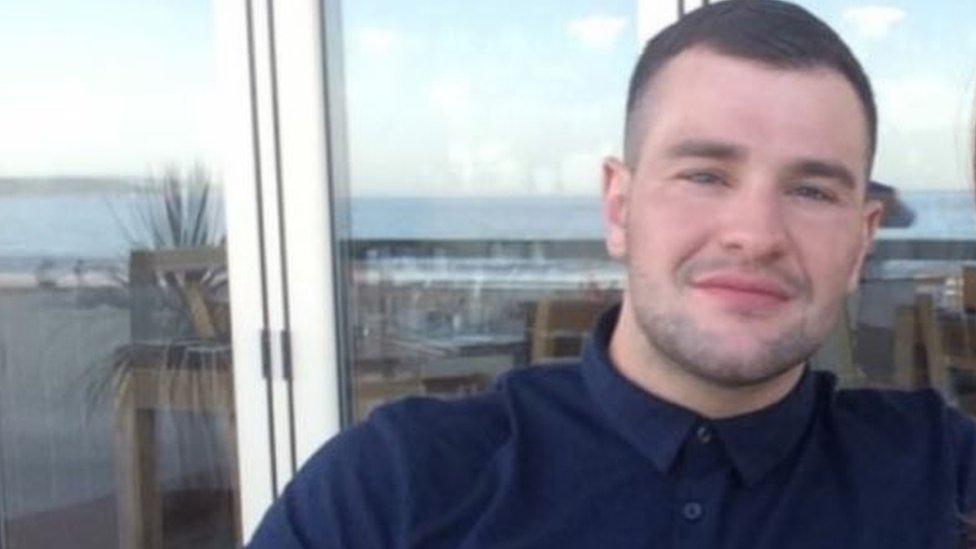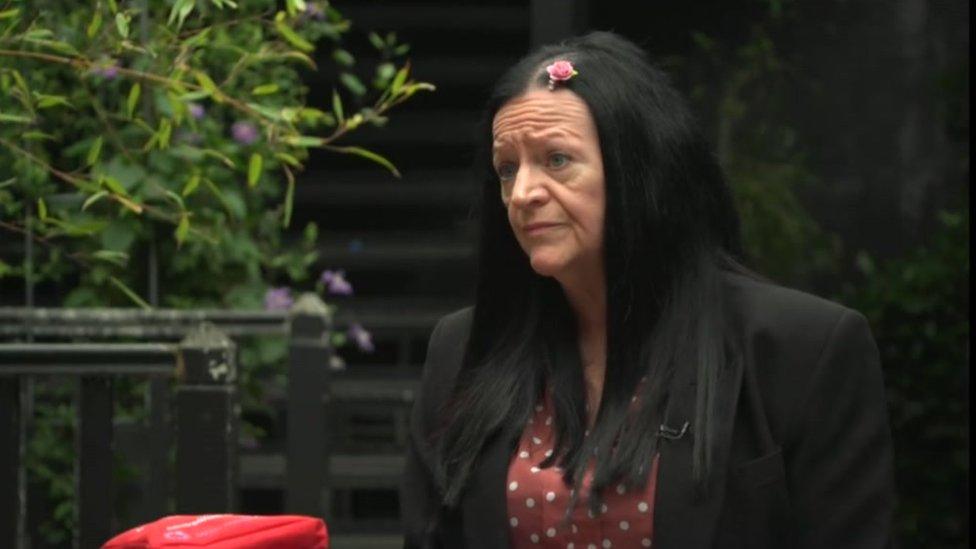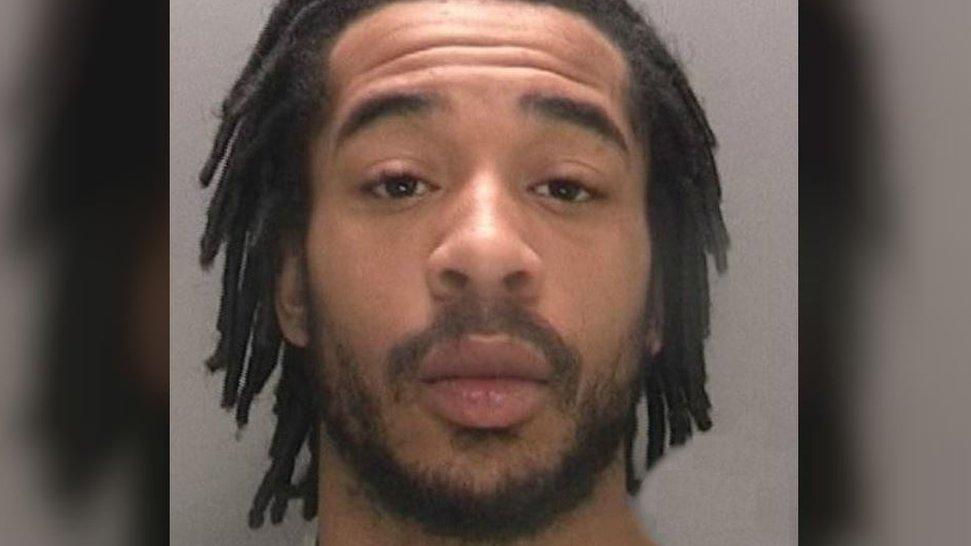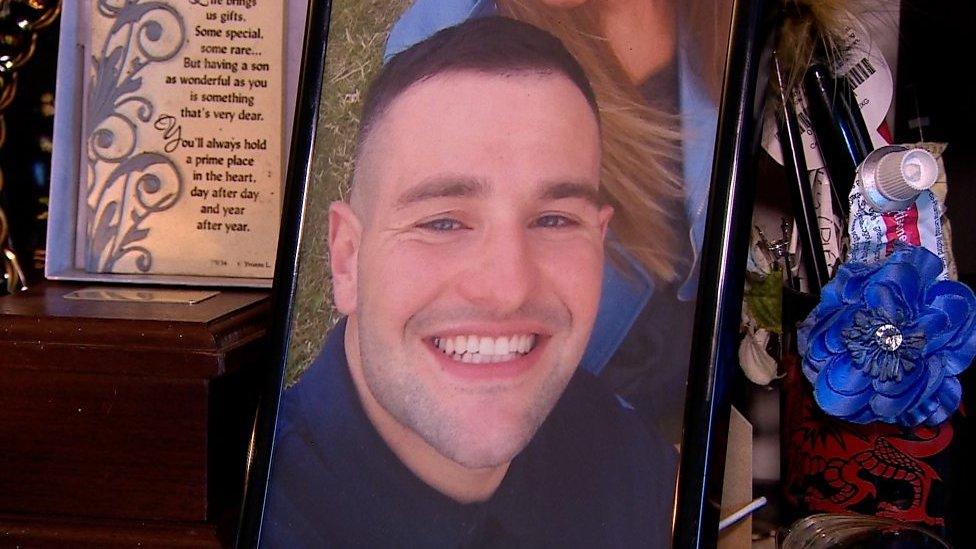Bleed control kits sent to Birmingham pubs
- Published
Bleed control kits scheme launched in Birmingham pubs and bars
Specialist first aid kits have been installed in more than 50 bars and clubs in Birmingham to try to reduce deaths from knife attacks.
The move follows a campaign by Lynne Baird after her son, Daniel Baird, 26, was stabbed to death in the city in 2017.
West Midlands Ambulance Service helped to design the bleed control kits and will map their locations so people can be pointed to one after a 999 call is made.
A total of £4,000 in police and crime commissioner funding was put forward.

Daniel Baird was stabbed outside The Forge Tavern in the Digbeth area of Birmingham
Lynne Baird has spent 14-months campaigning for the roll-out of the kits that she believes could have prevented her son from dying.
They include items such as a tourniquet, bandages and a foil blanket.
"I think he could still be with us, I really do, because he wasn't aware he'd even been stabbed I don't think," she said.
"And these kind of injuries they're just awful because you don't actually realise what's happened... and if no-one's there that knows what to do, that's it."

Lynne Baird, who set up The Daniel Baird Foundation, has campaigned for the roll-out of the bags that she believes could have prevented her son's death
Campaign group The Daniel Baird Foundation said its objectives included to campaign for all first aid training courses to "incorporate catastrophic bleed control" and to encourage property managers and business owners to keep accessible kits on their premises.
On average it takes an ambulance seven minutes to arrive. Bleeding from trauma injuries can prove fatal in three to five minutes, the charity said.
Mr Baird, who was on a night out, died when a dispute between two groups of men spilled outside the Forge Tavern in Digbeth on 8 July 2017.
Carlton Donaldson, 24, of Minstead Road, Erdington, was jailed for life in February, after stabbing Mr Baird, a stranger, to death following a row over an electronic punchbag in a pub.

Follow BBC West Midlands on Facebook, external, on Twitter, external, and sign up for local news updates direct to your phone, external.
- Published28 February 2019

- Published14 December 2017
